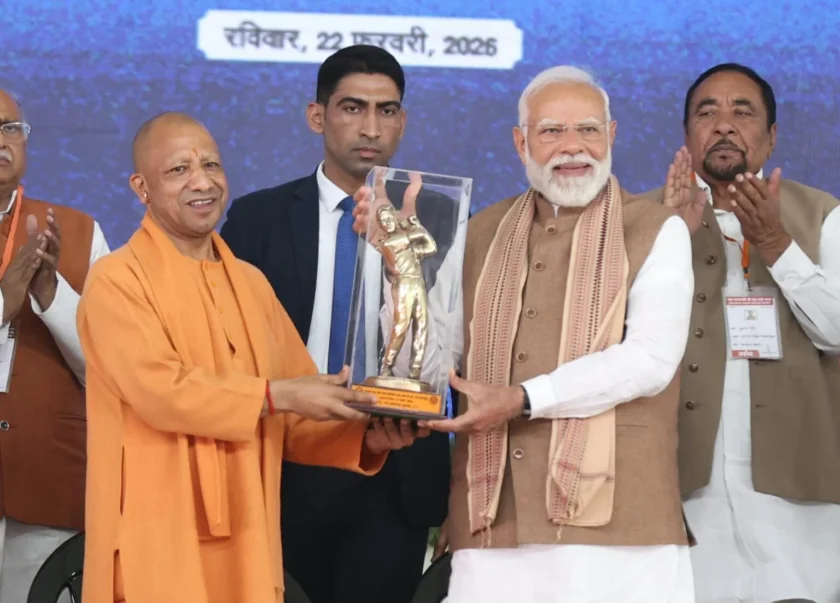Kanpur: Women academicians in India are not just educators; they are pioneers, change-makers, and inspirations. Their contributions to academia and society challenge stereotypes, empower individuals, and drive social progress. By breaking barriers and excelling in their fields, they set an example for future generations, proving that women can achieve greatness in any domain. As educators, researchers, and leaders, they not only contribute to academia but also serve as catalysts for societal change, inspiring millions to challenge stereotypes and embrace equality.
Today, women academicians continue to break barriers by occupying leadership positions in universities, heading research projects, and contributing to cutting-edge innovations. Their stories remind us that education and empowerment are the keys to unlocking a brighter future for all.
To mark National Women’s Day, The Lucknow Tribune spoke to Dr. Mamta Shukla, Director, Axis Institute of Planning and Management, Kanpur. She discussed the challenges women face in academia and explored ways to overcome these barriers. She shared insights into her incredible journey and the mentors who inspired her along the way.
Empowerment Through Education
The Lucknow Tribune: In your opinion, how can one empower through education?
Dr. Mamta: Thank you for having me. Women academicians play a crucial role in empowering others through education. By mentoring students, especially young women, they create a ripple effect that extends beyond individual success. Such efforts ensure that more women have access to quality education and opportunities to thrive.
In rural and underserved areas, women academicians often work tirelessly to improve literacy rates and educational outcomes. They serve as role models for girls who might otherwise be discouraged from pursuing education due to societal pressures. By demonstrating that education can lead to independence and success, they encourage families to invest in their daughters’ futures.
Challenges Faced by Women in Academia
The Lucknow Tribune: What barriers or challenges have you experienced as a woman in life or your career?
Dr. Mamta: I am privileged to say that I have never experienced struggles solely because of my gender. I faced many ups and downs as a person and a working woman, but I never attributed them to being female. Perhaps I was conditioned to look past predispositions and focus on getting things done rather than on obstacles. I consider myself fortunate to be a product of an environment where women were as empowered as men.
The Lucknow Tribune: That’s inspiring. But what challenges do women academicians face in India today?
Dr. Mamta: Unfortunately, the challenges are still significant. Gender bias, unequal pay, and limited access to leadership roles are persistent issues. Many women also struggle to balance professional responsibilities with societal expectations of familial duties.
Addressing Challenges in Academia

The Lucknow Tribune: What steps can be taken to address these challenges?
Dr. Mamta: First, we need gender-sensitive policies in academic institutions—equal pay, maternity leave, and childcare support are essential. Second, we must amplify representation by reserving leadership roles for women and promoting diversity in hiring. Third, mentorship programs can help young women navigate their careers. Finally, we must combat gender biases through strict anti-discrimination laws and inclusive campus environments.
Women Academicians as Exemplars in Indian Society
The Lucknow Tribune: How do women academicians serve as role models in Indian society?
Dr. Mamta: In a country as diverse and complex as India, the role of women academicians extends far beyond classrooms and research laboratories. They are pioneers, role models, and agents of social change. Their contributions to academia and society have been instrumental in challenging stereotypes, breaking barriers, and inspiring future generations. Women academicians in India serve as powerful examples of resilience, intellect, and leadership, embodying the potential of women to transform society through knowledge and empowerment.
The Lucknow Tribune: Do you believe female academicians can bring about social change?
Dr. Mamta: Absolutely. Women academicians are at the forefront of addressing societal issues through their research and advocacy. Whether it is studying gender inequality, developing sustainable solutions for environmental challenges, or advocating for policy changes, their work has a profound impact on society.
Moreover, women academicians often use their platforms to advocate for gender equality and social justice. They challenge discriminatory practices within institutions and work towards creating inclusive environments where everyone, regardless of gender, can thrive. Their leadership in academia sets an example for other sectors to follow, promoting a culture of equality and respect.
A Message for Aspiring Women Academicians
The Lucknow Tribune: What message would you like to leave for aspiring women academicians?
Dr. Mamta: My message is simple: Believe in yourself. The road may be tough, but your contributions are invaluable. Education is not just a tool for personal success; it is a weapon for social transformation. By pursuing knowledge and breaking barriers, you are not only shaping your own future but also paving the way for a more equitable and enlightened society.









